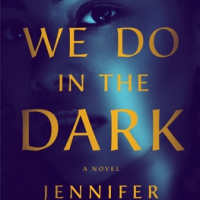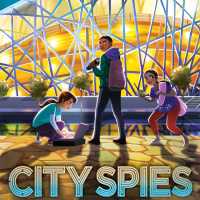Book Review: The Art of Prophecy by Wesley Chu
I received a review copy from the publisher. This does not affect the contents of my review and all opinions are my own.
 The Art of Prophecy by Wesley Chu
The Art of Prophecy by Wesley Chu
Mogsy’s Rating: 4 of 5 stars
Genre: Fantasy
Series: Book 1 of The War Arts Saga
Publisher: Del Rey (August 9, 2022)
Length: 544 pages
Author Information: Website | Twitter
I have been reading Wesley Chu’s work for a long time and if I’m not mistaken, I believe The Art of Prophecy might be his first foray into the epic fantasy genre. This first book of his new series The War Arts Saga is a lushly written story of intrigue, adventure and action set in a world that’s not only inspired by rich histories and theologies of Asian cultures but also the martial-chivalric traditions of the Wuxia genre. There’s no doubt this novel is much bigger, deeper, and very different in style and scope to the author’s previous works, but fans will be happy to know his writing is as witty and entertaining as ever.
It also might not surprise anyone to learn that one of the main themes of The Art of Prophecy is…well, prophecy. According to the book’s lore, many centuries ago it was foretold that a child will be born whose destiny is to defeat the Eternal Khan, the immortal god-king of the Katuia Hordes. When the story opens, this chosen one has been identified as Wen Jian, now a teenager studying at the palace under the tutelage of many masters who have been training him in martial arts since he was small boy. Somewhere along the way though, it appears that both the student and his teachers have become blinded by the pomp of prophecy, losing sight of their purpose. Thus, when the celebrated war master Ling Taishi arrives to evaluate Jian, rather than the great warrior everyone expected, she instead finds a pampered young man who has never been tried in a real battle.
Disgusted, Taishi decides to take the boy on as her apprentice, determined to transform him into the hero that the prophecy promised. Having been doted on and spoiled his entire life, Jian initially rebels against her harsh training, but then the two of them eventually reach a point of mutual respect—just in time to receive the news that the Eternal Khan has died. In a single moment, Jian’s entire world is turned upside down. For if the nemesis that he was fated to kill is already dead, then where does that leave him? Sensing that the boy will be in great danger now that the entire prophecy has crumbled around him, Taishi escapes the palace with Jian and takes him to a warrior arts school, where she plans to hide him until the danger has passed.
But as it turns out, Jian has more to fear than death at the hands of his own people. Out in the Grass Sea, Sali of the Katuia has taken on an important quest now that the khan and her dear friend whom she had pledged her life to is now gone. And then there’s the mysterious Qisami, a ruthless bounty hunter and assassin who has been tasked to kill Jian.
Hands down, what I loved most about The Art of Prophecy was the way it turned a well-known fantasy trope on its head. What happens when the chosen turns out not to be the chosen one after all? While the first part of the novel played out like your typical master and apprentice scenario with Taishi taking on the role of wise teacher and Jian the part of the reluctant student, the plot was turned on its head once it is revealed that the Eternal Khan is dead. From here on out, it was anyone’s guess what would happen. While I will admit to being a big fan of warrior-in-training stories so I didn’t actually mind the cliches in the first part that much, I also had a blast once the focus shifted to Jian’s exile and all the developments that followed.
Once Taishi left Jian at the school and they went their separate ways, that was also when I felt both characters were able come into their own. They became much more interesting as a result, after shaking off the expectations that came with their previous roles. It became a close contest at this point as to who was my favorite POV to follow, as Sali’s presence also grew more prominent as the story progressed. She was definitely one of the more memorable characters, caught between duty and her own personal mission to find her missing sister. Perhaps the only character I did not feel much sympathy for was Qisami. She seemed a little over-the-top, and had little depth beyond being the badass, merciless, psychotic assassin archetype. Hopefully the next book will give her more substance.
For the next installment, I’m also hoping for more world-building. What we got here was quite solid, but sometimes sparse in places. Knowing that this is an Asian-inspired world influenced especially by the traditions of wuxia made it somewhat easier to fill in any voids left in the setting, but I would love to see everything more fleshed out in the sequel—more depth in the history and cultures of the people and in the characters’ backstories.
But all in all, The Art of Prophecy was a great start, and clearly the next step in Wesley Chu’s journey as a writer. It’s a very ambitious project, one that I can see developing into an impressive tour de force. It was undeniably a winner in my eyes in terms of providing action and entertainment, two elements that are often rare or hard to maintain in an epic fantasy series, but which this novel had no problems delivering in high energy amounts. I hope the momentum will continue and I look forward to picking up the next book.
![]()












While my first foray into Wesley Chu’s SF writing did not go all that well, I’m curious to see how he fares with this change of genre, and your description of the books and characters makes me want to… take the plunge 😉
Thanks for sharing!
LikeLike
This is definitely on another level than his Tao or Io or even his Time Salvager series. I would give it a shot!
LikeLiked by 1 person
I’m glad to see this delivered! Just like you I’ve been a big fan of Chu’s for years, and I hope this brings him a lot more readers.
LikeLike
I hope so too, this one deserves a lot more attention than it has been getting.
LikeLike
Ok, I’ve got to try this too. Stories that put a twist on tropes really interest me. Plus, I love that cover.
LikeLike
I agree, it’s a fantastic cover!
LikeLike
Sometimes cliches are still fun even if they’re cliches! Referencing the first part of the book. but then the upending of the cliche makes it even better, sounds like. I’ve been kind of lamenting that Chu doesn’t seem to be planning on continuing his Time Salvager series anytime soon, so I guess I’ll have to try one of his other books. 🙂
LikeLike
Yeah, I had a good time with Time Salvager too! I’m also glad he’s been able to experiment with other genres and ideas.
LikeLike
I’m not a huge fan of Wesley Chu, but maybe I’ll have to reconsider this series. Assuming I ever get a handle on my TBR that is;) Glad you liked it! Hope everything’s going well!
LikeLike
Might be worth a try, since this one’s very different! The scope of it feels much bigger, and I just get the general sense that his style has really matured, so that’s always good!
LikeLiked by 1 person
Pingback: Bookshelf Roundup 09/25/22: Stacking the Shelves & Recent Reads | The BiblioSanctum
I’m very glad to see you enjoyed this. I’ve yet to read anything by Wesley Chu, unless maybe I’ve read some short stories. But this sounds like a book almost sure to appeal to me. I do think I want to finish a couple other Asian inspired fantasy series I’ve started first, but after that I look forward to trying this one.
LikeLike
I’d always known him to be a sci-fi writer, so this one was really interesting to me! I hear ya with the other Asian inspired fantasy series though, there seem to be so many out there and I’m waaaay behind on a lot of them.
LikeLike
I so love your reviews, Mogsy. Because you make me fall in love with the books you fall in love with. Okay, off to get a copy of this. 🙂
LikeLike
Thank you! And I hope you’ll enjoy it!
LikeLiked by 1 person
I’m glad to see you liked this! I’ve been hearing good things.
LikeLike
Seems like it’s been getting some good reviews! needs more attention!
LikeLike
I also really like this author and will definitely be picking this up at some point.
Plus – that cover is fantastic.
Lynn 😀
LikeLike
Yeah, the art style of the cover is just amazing!
LikeLike
This is a book I know I won’t get to read until next year, but I’m glad to know that the wait will be worth it.
LikeLike
I hope you will enjoy it! And then hopefully the sequel won’t be far off then 😀
LikeLike
I guess I really need to try this series
LikeLiked by 1 person
It’s off to a pretty great start!
LikeLike
Oh, this sounds good!
LikeLike
Yes, it was a lot of fun!
LikeLiked by 1 person